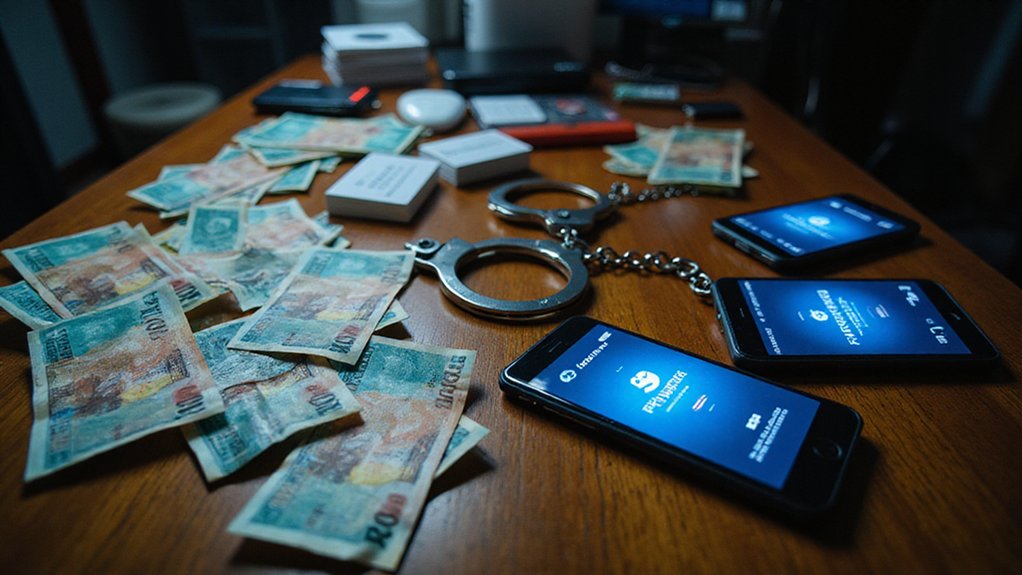In what might charitably be called an exercise in creative entrepreneurship, Australian authorities have dismantled a $190 million cryptocurrency laundering operation that demonstrated remarkable ingenuity in its choice of front businesses—a cash-in-transit security company that, one presumes, took the concept of “handling money” rather more literally than regulators intended.
The Queensland Joint Organized Crime Taskforce‘s 18-month investigation, culminating in December 2023, revealed an operation of breathtaking complexity that would make legitimate financial engineers weep with envy.
Four individuals now face charges in connection with a scheme that transformed the humble armored car business into what amounts to a cryptocurrency conversion factory, complete with sham directors and encrypted wallets—because nothing says “legitimate security business” quite like maintaining anonymous digital asset repositories.
The armored car industry’s latest innovation: transforming cash transport into cryptocurrency laundering with remarkable entrepreneurial flair.
The operational structure reads like a masterclass in financial obfuscation: illicit cash flowed through the security firm’s legitimate earnings, then dispersed across a constellation of entities including a sales promotion company and classic car dealership (apparently even money launderers appreciate vintage aesthetics).
These funds subsequently migrated to cryptocurrency exchanges, where the alchemy of digital transformation rendered their origins conveniently opaque. Australian exchanges like BTC Markets, established in 2013, have implemented stringent compliance measures including enhanced API access controls and sophisticated monitoring systems to prevent such illicit activities.
Authorities seized $170,000 in cryptocurrency assets alongside 17 properties, while freezing an additional $13.6 million in suspected criminal proceeds—suggesting this particular security company’s “protection services” extended well beyond conventional parameters.
The 70-officer investigation uncovered transaction trails that mapped the laundering mechanism with forensic precision, revealing how blockchain technology‘s promise of transparency ironically enabled anonymity. The multi-jurisdictional probe spanned Queensland and New South Wales.
This case illuminates cryptocurrency regulation’s fundamental paradox: the same distributed ledger technology that theoretically provides perfect auditability also facilitates unprecedented obfuscation when properly manipulated. Analysis from Chainalysis indicates that over $100 billion has flowed from illicit wallets to conversion services between 2019 and mid-2024, highlighting the scale of cryptocurrency’s role in financial crime.
The seized business records and encrypted wallets underscore how traditional money laundering techniques have evolved to exploit digital asset ecosystems, creating hybrid operations that straddle physical and virtual financial domains.
The investigation’s scope suggests potential international implications, given that $123 million operations rarely confine themselves to single jurisdictions.
More importantly, it demonstrates how cryptocurrency’s decentralized nature continues challenging regulatory frameworks designed for centralized financial systems, leaving enforcement agencies perpetually one step behind increasingly sophisticated laundering methodologies.









